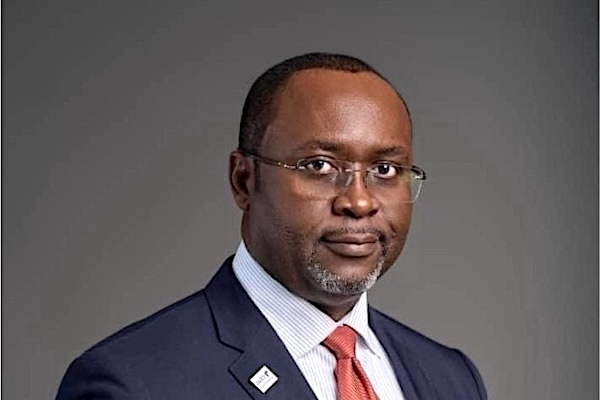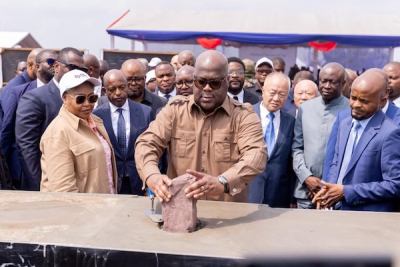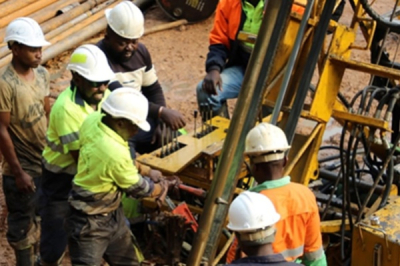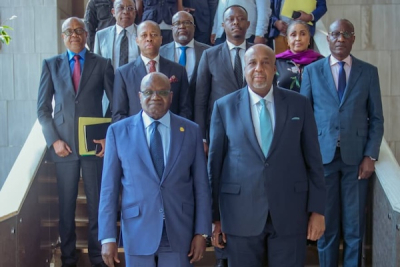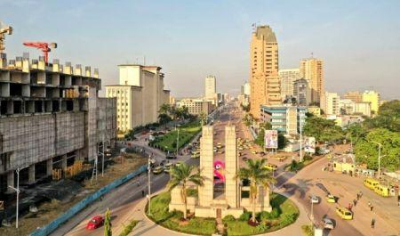For months, Albert Zeufack has emerged as a potential candidate to head the African Development Bank (AfDB). However, he remained publicly silent in this regard until now. In this feature, Zeufack officially and exclusively shares his ambitions with Bankable.
It is official! Albert Zeufack is aiming for the highest position at the African Development Bank (AfDB). Zeufack, currently the World Bank's country director for Angola, Burundi, the Democratic Republic of Congo (DRC), and São Tomé and Príncipe, had shared this with Cameroon’s ambassador in the DRC mid-year. He prepared and submitted his application to Yaoundé. The Cameroonian authorities have yet to provide feedback.
“I keep believing that the authorities will provide a favorable response to my application to give Central Africa a better chance," Zeufack told Bankable, optimistic. The AfDB has never had a president from Central Africa and many analysts argue that it is time for a candidate from a member country of the Economic Community of Central African States (ECCAS) to step forward. The current president is Nigeria’s Akinwumi Adesina whose term ends on August 31, 2025.
To have a candidate take over the pan-African institution after Adesina’s exit, Central Africa must submit a profile that wins over all 82 shareholders of the AfDB, including 28 non-African countries.
On March 9, 2024, ECCAS endorsed Mahamat Abbas Tolli as its "sole candidate for Central Africa." On December 14, Chad officially recommended Tolli, former governor of the Bank of Central African States (BEAC).
However, a leaked letter from Cameroon's Minister Delegate for External Relations, Félix Mbayu, dated July 17, 2024, suggests that Tolli may not obtain the support of the African Union (AU), which holds 61% of the voting power. According to the leaked document, the AU States allegedly accuse the Chadian of "management errors" during his tenure at BEAC. The accusations “include tribalism, nepotism, and breaching procedures which led to the recruitment scandal of 2022”. This criticism could hinder his election.
Regardless, the Cameroonian diplomacy noted since a Chadian has been heading the AU Commission since 2017, could also play against Central Africa, preventing it from securing the AfDB’s helm.
DRC: The Perfect Testing Ground
In these circumstances, many officials in Cameroon and the sub-region deem that "Mr. Zeufack appears to be an alternative capable of better safeguarding the interests of Central Africa." Unlike previous AfDB presidents, Zeufack has not held a ministerial position in his country, which Zeufack believes to be a good thing. "What if the board wants an unconventional candidate to reform the institution? I would be the ideal candidate," he claimed.
With over 30 years in economic development, Zeufack has garnered extensive experience, particularly with Asian economies like Malaysia. A close associate notes, "Albert has acquired the skills to provide concrete solutions to the challenges facing the continent," emphasizing his potential to drive the AfDB's ten-year strategy (2024-2033), which focuses on accelerating green and inclusive growth.
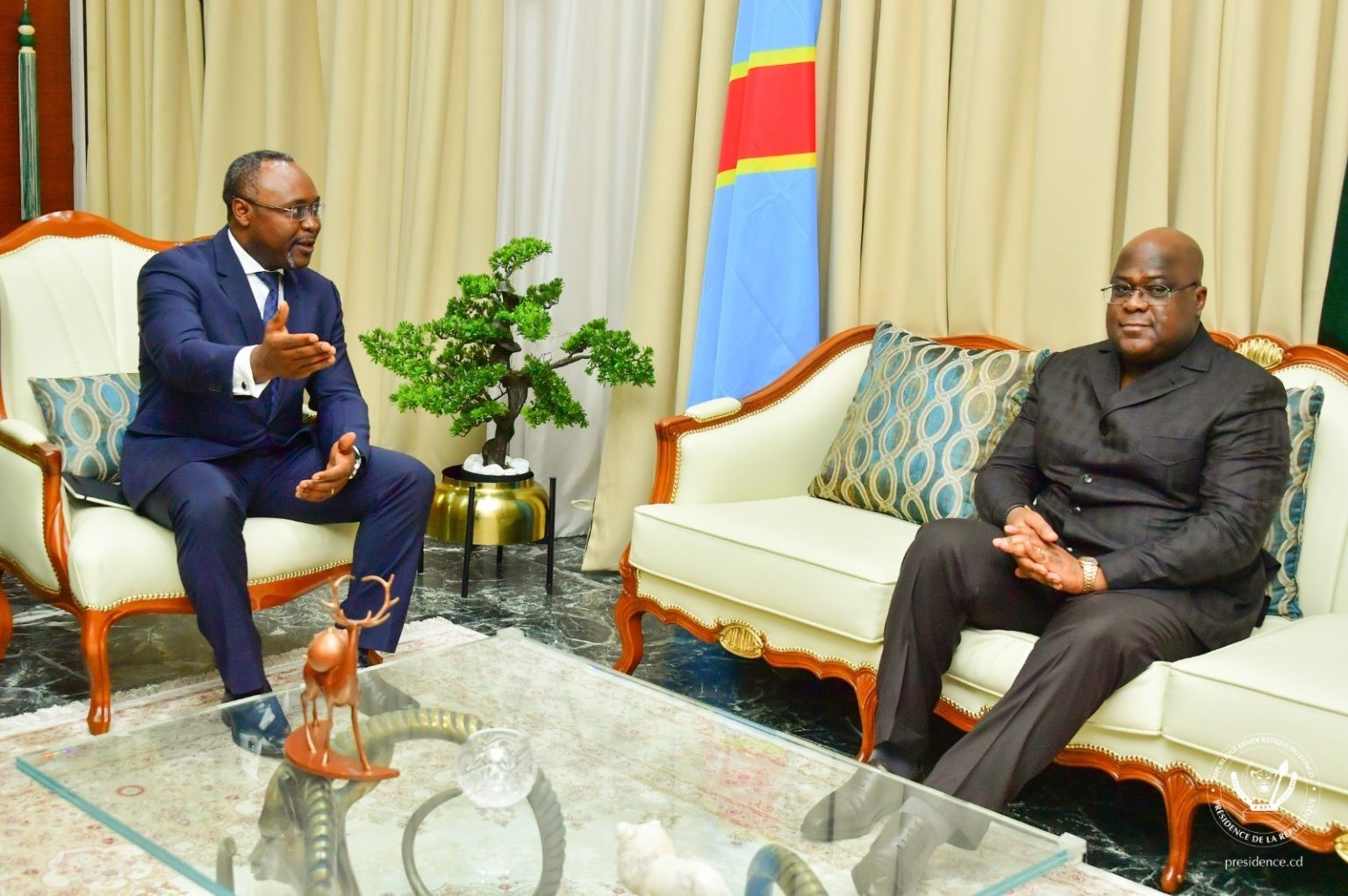
Zeufack's career began as a consultant at the World Bank from 1993 to 1994, and he joined the institution full-time in 1997 as an economist in the macroeconomics division. In 2022, he became the first African Chief Economist for Africa. Six years later, he was appointed Country Manager for Angola, Burundi, DRC, and São Tomé and Príncipe. Notably, he took a leave from 2008 to 2012 to serve as Chief Economist and Director of Research and Strategy for Malaysia's sovereign wealth fund, Khazanah Nasional Berhad.
Zeufack said he has always been actively committed to Africa's development. His work includes securing World Bank financing for Kenya's decentralization project, conducting Morocco's first major competitiveness survey, and helping shape Côte d'Ivoire's Vision 2030. He also played a key role in introducing Malaysia's sovereign wealth fund to Africa.
An extensive network enhances his candidacy; he has established connections across 42 countries and is involved with various organizations, including the UN Network for Sustainable Development, the Technical Advisory Committee for the Natural Resources Charter at Oxford, the Advisory Board of the Natural Resources Governance Institute (NRGI) and the Board of Directors of the African Economic Research Consortium (AERC).
To help us fully assess his potential on a continental scale, Albert Zeufack urges to focus on the Democratic Republic of Congo (DRC), a nation spanning over two million square kilometers and home to more than 100 million people. "The DRC looks like a laboratory for what I could do on an African scale. (...) The DRC combines all the difficulties faced by African countries. Doing projects in the DRC prepares us to do them everywhere in Africa," the economist explained.
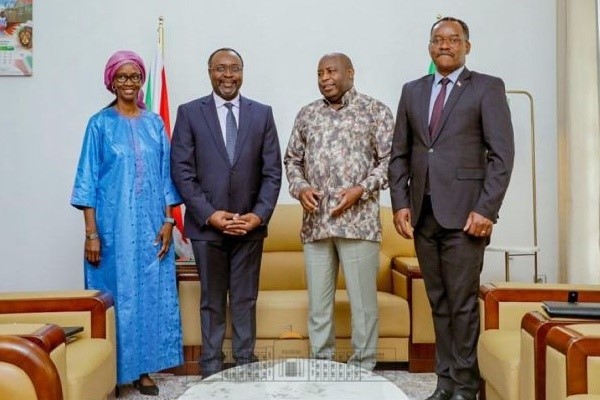
Since July 2022 when Albert Zeufack took over as head of operations in the DRC, the World Bank's portfolio in the country has nearly doubled, from $5.2 billion in 2021 to $8.3 billion by mid-2024. Convinced that "building modern connectivity infrastructure is the key to industrialization," Zeufack championed multiple projects across various sectors, including the digital, energy, water, and transport sectors. As a result, over three million residents in Kinshasa now have access to drinking water, two million improved electricity connections have been established, and work has commenced on the Mbuji-Mayi-Kabinda-Bukavu freeway, funded by $1.5 billion from the World Bank.
Also, after a 15-year hiatus, World Bank budget support resumed in 2022 with an initial allocation of $250 million, expected to total $2.25 billion by 2026. "We have obtained that the first budget support, which was $250 million in 2022, will increase to $500 million the following year and that this amount will be renewed every year until 2026," explains Zeufack. This was not easy “since securing this support requires meeting specific criteria.” These funds help support reforms to bolster governance and improve the business climate, to attract private funding in the DRC.
«Mr. Inga»
At the World Bank or in the DRC, Albert Zeufack has earned the nickname “Mr. Inga”, after the ambitious Inga project. Inga is a project to build a +40 GW power plant on the Congo River. Zeufack is recognized as the architect who brought the World Bank on board the project after the institution had withdrawn from Inga III (the project’s third phase which was expected to have a minimum installed capacity of 3 GW). The World Bank had withdrawn from the mega project in 2016 due to disagreements with Congolese leaders.
Now, over 50 employees from the World Bank Group are fully dedicated to the project. Also, new technical studies are being financed, as the old ones are over a decade old. A 10-year program should be submitted to the Bank's board in H1 2025. This program, valued at $1 billion, aims to prepare the DRC for the project. It should also help enhance the skills of Kongo-Central residents, enabling them to secure the job opportunities yielded by Inga III and build essential infrastructure to accommodate an influx of people.
Zeufack persuaded his superiors and local authorities to shift the project's focus. "For a long time, the project was exclusively viewed as a way to meet the energy needs of a large part of the continent, but the new vision, sparked by the World Bank’s current country manager, is rather to make it first and foremost an engine that drives the country’s development," said Landry Djimpé, a World Bank consultant for Inga III. This new approach prioritizes providing electricity to the 80 million Congolese who still sleep in the dark, and fostering the DRC's economic transformation, before exporting energy to neighboring regions.
However, Zeufack acknowledges that significant work remains before construction can commence. Studies must be conducted, options evaluated based on cost and electricity demand, and financing secured. Zeufack taking over the AfDB’s helm would surely result in the pan-African lender playing a greater role in the Inga III project–an ambition the institution often expressed.
This article was initially published in French by Aboudi Ottou
Edited in English by Ola S. Akinocho






